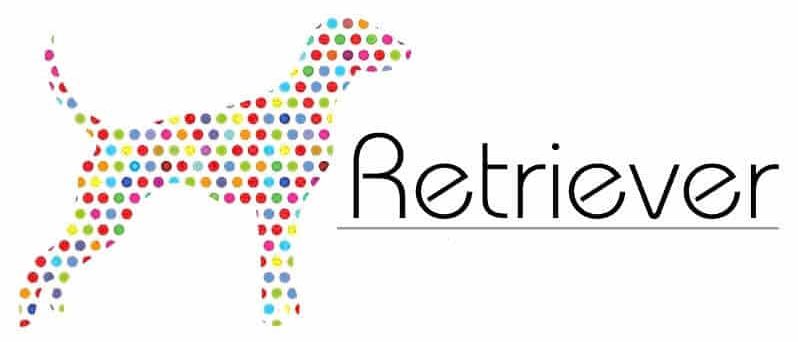Maintaining an optimal golden retriever weight transcends mere aesthetics; it is fundamental for their prolonged health and dynamism. Proper golden retriever weight management mitigates various health risks. It also encourages an energetic lifestyle for these affable canines. This article highlights the critical nature of golden retriever weight guidelines. It is a vital aspect of conscientious pet ownership that directly impacts the health and happiness of these valued pets.
Key Takeaways
- Understanding the significance of optimal weight for golden retriever health and happiness.
- Applying golden retriever weight guidelines to safeguard against health complications.
- Recognising the essential role of weight management in a golden retriever’s quality of life.
- Adopting a proactive stance on pet weight management through regular monitoring and veterinary advice.
- Implementing strategies tailored to individual needs for maintaining a healthy golden retriever weight.
Understanding the Ideal Weight for Golden Retrievers
Maintaining an ideal weight for a golden retriever necessitates a focus on multiple health and lifestyle aspects. Appreciating the subtleties of factors influencing golden retriever weight and indicators of a fit body are crucial for owners dedicated to keeping their retriever’s weight within a healthy spectrum.

Factors Influencing Golden Retriever Weight
A myriad of elements impact a golden retriever’s weight, each shaping their overall health. From inherited traits to daily routines, comprehending these components is vital for sustaining and recognising a healthy weight for golden retrievers. The ageing process naturally adjusts a retriever’s metabolism, altering their caloric needs, while their level of physical activity has a significant impact. Moreover, the choices in their diet and the measure of food they consume are crucial in controlling their weight.
Recognising a Healthy Weight for Golden Retrievers
Owners often ponder, ‘how much should a golden retriever weigh?’ Typically, an ideal weight for golden retriever involves ribs being palpable with minimal fat cover, without them being overly visible. They should exhibit a waist from above and a tuck-up from the side view. Routine checks by a veterinarian are beneficial in confirming their weight is within a healthy range.
Common Weight Abnormalities in Golden Retrievers
Both obesity and undernutrition in golden retrievers present substantial health risks. Excess weight can cause joint issues, diabetes, and cardiac conditions, while insufficient weight may signal malnutrition or unidentified health problems. Early detection of such common weight abnormalities in golden retrievers is key to guiding them toward an optimal weight and lifestyle.
| Weight Category | Characteristics | Health Risks |
|---|---|---|
| Underweight | Ribs, spine, and pelvic bones easily felt; loss of muscle mass | Malnutrition, weakened immune system, potential organ failure |
| Ideal Weight | Ribs palpable without excess fat; visible waist and abdominal tuck | Optimal health, lower risk of chronic diseases, improved mobility |
| Overweight | Excess body fat; ribs difficult to feel; No waist | Joint stress, diabetes, heart disease, respiratory difficulties |
Golden Retriever Weight Management Strategies
Maintaining a healthy weight for golden retriever dogs necessitates an integrative strategy. This involves diet, exercise, and continuous monitoring. Herein, we delineate efficacious measures aimed at preserving a balanced weight.
- Diet Control: Portion control and a balanced diet are crucial for staving off obesity. Seeking advice from a veterinarian or a pet nutritionist can equip owners with customised feeding timetables and dietary recommendations.
- Regular Exercise: Given their innate activeness, golden retrievers require daily physical activities. Options include walks and more dynamic exercises such as fetch or swimming.
- Consistent Monitoring: It is imperative to regularly monitor the dog’s weight and body condition. This aids in identifying early signs of weight fluctuations, thus facilitating timely adjustments.
- Behaviour Modification: Encouraging healthy eating practices through training is beneficial. This includes avoiding table scraps and opting for low-calorie snacks.
- Professional Guidance: For tailored weight management strategies, the input of veterinarians or pet nutritionists is invaluable.
Weight management in golden retrievers might demand adaptability to suit the dog’s age, health, and unique needs. Hence, owners must adopt a flexible approach.
Establishing a Weight Management Table: Crafting a systematic guide can facilitate effective weight management. It comprises essential routines to ensure the dog remains on a healthy trajectory.
| Aspect | Description | Frequency |
|---|---|---|
| Feeding | Measured meals, tailored to meet the nutritional requirements of golden retrievers. | Twice Daily |
| Exercise | A combination of aerobic and strength training tailored for the breed. | Daily |
| Monitoring | Frequent evaluations to maintain the dog’s weight within the optimal range. | Bi-Weekly |
| Professional Consults | Consultations with pet health specialists for custom weight management advice. | As Needed |
The pursuit of a healthy weight for golden retriever pets transcends mere weight management. It also significantly enhances the dog’s overall well-being. By proactively adhering to these golden retriever weight management strategies, owners can cultivate a content, salubrious, and contented canine companion.
Conclusion
In concluding our extensive discourse on golden retriever weight maintenance, the essence of adhering to weight guidelines must be emphasised. It transcends mere appearance, becoming critical for the wellbeing, extended life span, and joy of these cherished animals. Optimal weight maintenance is pivotal in averting health dilemmas and cultivating a spirited, contented companion.
This document underscored the critical nature of recognising an ideal weight range for golden retrievers, taking into account diet, activity levels, and genetic predispositions. It impels owners to consistently observe their pet’s weight. This vigilance reflects a profound level of care, enhancing the life quality of their companions. By applying the discussed strategies, navigating weight management challenges becomes feasible.
Upholding golden retriever weight is an ongoing endeavour, requiring routine evaluation and care adjustments. The guidelines offered herein equip owners with the knowledge to act in their pet’s best interest. An environment that endorses a nutritional diet and adequate exercise sets the foundation for golden retrievers’ thriving health and zest.
FAQ
What is considered the optimal weight range for a Golden Retriever?
Males should ideally range between 25 and 34 kilograms, while females should be 25 to 32 kilograms. Consulting a veterinarian is paramount, as individual health and physique significantly influence optimal weight.
What factors influence a Golden Retriever’s weight?
Numerous factors affect weight, including age, metabolism, activity level, and diet. Genetic predispositions and lifestyle choices also play pivotal roles. Achieving balance among these aspects is essential for weight regulation.
How can I recognise if my Golden Retriever is at a healthy weight?
Indicators of a healthy weight include a visible waist and abdominal tuck, along with palpable ribs that are not overtly visible. It’s essential to undertake regular veterinary assessments for accurate evaluation.
What are some common weight abnormalities in Golden Retrievers?
Overweight and underweight conditions are prevalent abnormalities. Excess weight can precipitate joint problems, diabetes, and heart issues. Conversely, being underweight may suggest malnutrition or underlying health complications requiring professional intervention.
What are the crucial aspects of Golden Retriever weight management?
A balanced diet, consistent exercise, and close monitoring of food portions are fundamental. Professional advice from a veterinarian or a pet nutritionist is beneficial for devising effective weight control strategies.
How often should I monitor my Golden Retriever’s weight?
It is vital to monitor your dog’s weight monthly. This frequency assists in identifying and addressing weight fluctuations promptly. Adjusting the pet’s diet or exercise routine may be essential for weight maintenance.
What should I do if my Golden Retriever is underweight or overweight?
Seeking veterinary consultation is critical if your Golden Retriever deviates from its optimal weight. A veterinarian can pinpoint the cause and recommend a customised approach, encompassing dietary changes, suitable exercises, and possible medical interventions.
Can Golden Retrievers have different ideal weights based on their build?
Indeed, Golden Retrievers may exhibit slight variabilities in their ideal weight, contingent upon their build, bone density, and genetic markers. Veterinary advice should be sought for a bespoke assessment of an individual dog’s healthy weight.
Are there specific types of food that can help manage my Golden Retriever’s weight?
Certain dog foods are specifically formulated to assist with weight management, offering low-calorie but nutrient-dense options. It’s imperative to consult with a veterinarian prior to adjusting your dog’s diet significantly.
How important is exercise in maintaining a Golden Retriever’s weight?
Exercise is crucial for weight management in Golden Retrievers. It aids in calorie expenditure and muscle toning. An optimal regimen includes daily walks, playtime, and other activities tailored to the dog’s requirements.

